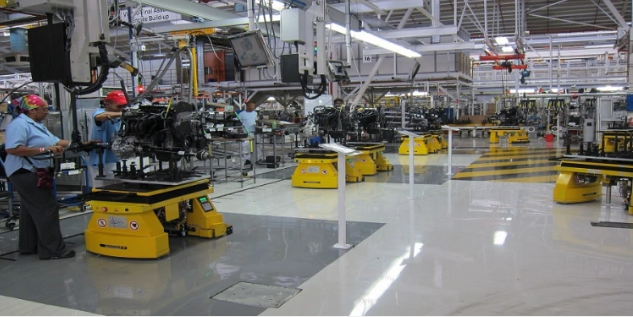Manufacturers’ panic buying has created an illusion of economic growth.
Newsonline reports that the fear of a dollar shortage has driven manufacturers to front-load their inventory requirements, creating the illusion of economic growth in Nigeria.
ALSO: Banks Dollar to Naira Exchange Rate Today, August 29, 2022 (Official Rate)
This was disclosed in the Financial Derivatives recently released Economics Bulletin for Q2 2022.
The Nigerian economy has been expanding for seven straight quarters since the third quarter of 2022, when the covid-19-induced recession was first noted.
What the report is saying
The report said,“The purchasing Managers Index, which is one of the most efficient predictors of cyclical trends, has been oscillating in the last 7 months. An interesting observation is that new orders increased consistently in the last 5 months. This raises questions as to whether manufacturers are optimistic about the future or they are hedging against a falling naira.”
The report stated that manufacturers have front-loaded their inventory needs out of concern of a dollar shortage, which has led to an appearance of economic growth in Nigeria.
“The fear of dollar scarcity means manufacturers will front load their inventory requirements, creating an illusion of expansion as against the real picture. This will manifest in a possible decline in purchases and ultimately slow GDP growth in the coming quarter,” the report said.
Despite the economy’s growth, there has been little progress in lowering unemployment. The report said, “While there is enough reason to cheer, it also calls for a moment of sober reflection. Of the 46 activities tracked by the NBS, only 33% expanded compared to 54% in Q1’22. Most of the sectors that slowed or contracted (manufacturing, agriculture, etc) are the major employers of labour. Hence, there will be a limited impact on unemployment, which is stubbornly high at 33%.”
What you should know
- Newsonline has reported that the Manufacturers Association of Nigeria (MAN) has expressed concern about the difficulty in obtaining dollars at official Central Bank of Nigeria prices. This, they claim, has made importing raw materials and machinery for their operations more complicated and expensive.
- Nigeria’s gross domestic product (GDP) grew by 3.54% year-on-year in real terms in the second quarter of 2022, an improvement compared to the 3.11% growth recorded in the previous quarter
- The agricultural sector contributed 23.24% of the total GDP, up from the 22.36% seen in the previous quarter. Additionally, the industrial sector made up 19.4% of the GDP, while services made up 57.35%.
- The Industrial sector declined by 2.3%, a further reduction when compared to the 6.81% decline seen in the previous quarter, while the Agricultural sector grew by 1.2% year-over-year, the Services sector expanded by 6.7%, and the Industrial sector contracted by 1.2%.














